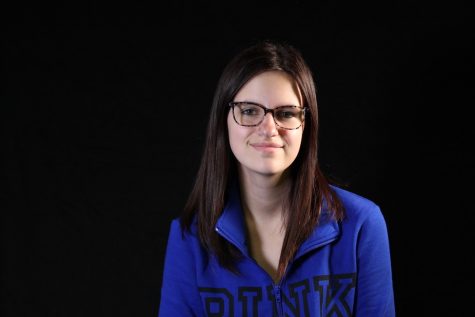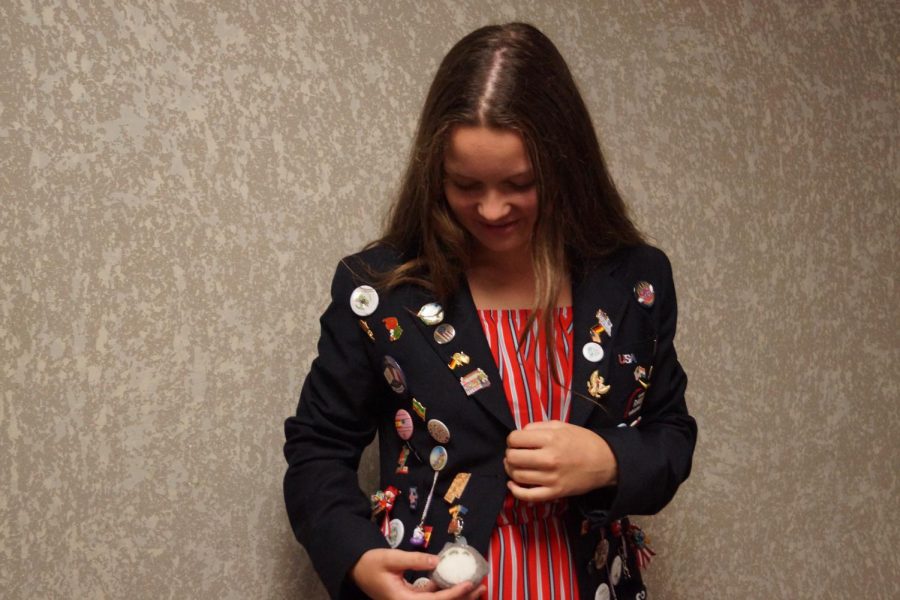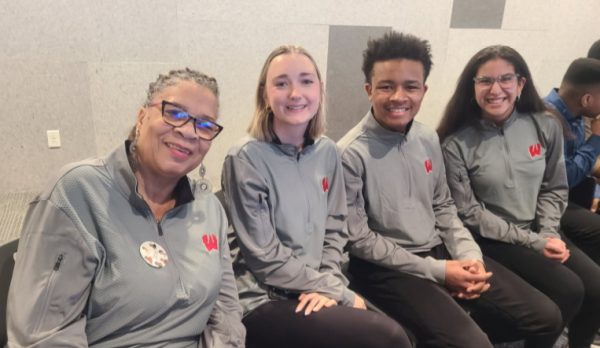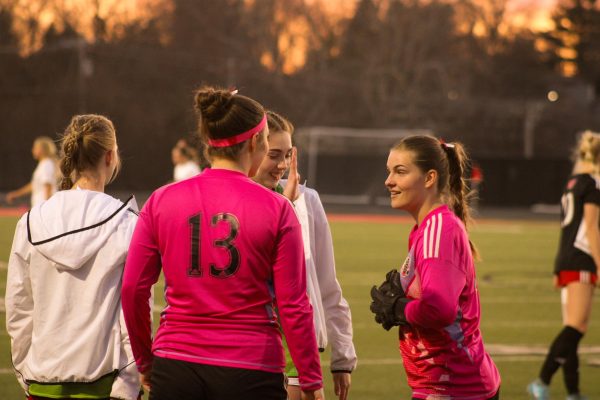Ex-Changed Experience: German Student Reflects on Time Spent in U.S.
Cooped up in multiple airports for over two days, thousands of miles away, dealing with cranky customer service, cancelled flights and emptying an entire suitcase just because of a jacket with pins isn’t how sophomore Jule Wessels planned to start her year in the United States.
In order for Wessels to get to the U.S., she had to take several flights in 48 hours. Many things went wrong. By the time she arrived in Omaha, she said she already missed her hometown Vechta, Germany.
“I had to wait at a gate while I was in New York, and I saw my flight was not on the display,” Wessels said. “I was then told I had missed my flight, but the women that told me that got it wrong. It was very stressful, and I was crying. [Customer service] told [me] to go to another gate, then I had to go back to the same one. Again, I was sent to another gate, all to be told the flight was cancelled. When you’re 17 on your own, you want to just get home.”
Wessels has come from Vechta in the German state of Lower Saxony, 4,530 miles from Omaha, to be a Rotary Youth Exchange student here at Westside. She is staying in the house of Laila Seran, who would be a sophomore this year, but is currently studying in Germany, also through Rotary.
Wessels was in the Gymnasium school. This school is one of the main schools where students go based off of their education level. It is for honors students from grades five to 13. She is now studying as a sophomore at Westside and taking classes such as French, Foods and Nutrition and Advanced Algebra. Wessels said that getting used to school in the United States has been a big experience.
“I don’t have open mods at my school,” Wessels said. “We have a five-minute passing period between classes. [During my day], I have six lessons, mostly just three subjects. So, it goes, first class is math for 45 minutes, then five-minute break, then the next lesson is a 45-minute math [class].”
The rest of the week, Wessels had the same setup, but her classes changed. Wessel’s said her homework load is also much lighter and easier here compared to back home.
“In Germany you have homework in biology, chemistry and physics,” Wessels said. “Each day I would spend two hours on homework in things like art, chemistry and religion, [classes] I have once a week. English, French, math, and German, I have two times [a week]. So I will have [a week to do the homework], but it’s not as much time as you think.”
Wessels has also been able to experience American traditions that she doesn’t get to experience in Germany. She’s met new people and attended her first football game. Her housemother, Robin Seran, helped Wessels to enjoy these experiences.
“It’s almost like we have moved into a new district,” Seran said. “I’m trying to help her make new friends, go to events where she can meet new people and that type of thing.”
Seran said daily tasks for the average person such as going to Costco or going to the movies at Majestic are things that Wessels gets to experience that are huge in her eyes. Even being able to choose from all the different classes was fun for her.
“[With] Jule, you have to explain the different clubs or the different expectations of school, academics and extracurricular and social type things,” Seran said. “It’s fun to see things through someone else’s eyes. It’s like a new experience for yourself.”
Seran said she tries to make Wessels feel at home as much as she can. As part of the Rotary Exchange, the student is treated as if they are part of the family, so they go to all family events and respect the family’s rules.
“It’s so nice [being in my new house],” Wessels said. “I didn’t expect to feel [at] home so quick. The first month was over in a minute. When I look back, I’m like, ‘Whoa, this is fast.’ I really appreciate that I’m at Robin’s and with Orhan [Wessels house father] … It’s really nice to feel at home so quick.”
There have been some things that Wessels and Seran have had to get accustomed to while living with each other, such as how many times Seran should wake Wessels in the morning or other family events. But, they live together and act like a normal family would. A part of living with the Serans that Wessels said she has gotten used to is the food.
“You would think food is food,” Wessels said. “It tastes different, and they make it different. So, at home, potatoes are what we eat the most. They eat very spicy [foods]. Every time I’m eating I have to have milk because it’s so hot.”
The difference in traditions in America and any other country are things that not many people get to experience or often think about. This is something Wessels said she has lived through for the past few months. Wessels said she is still continuing to explore and discover more about the United States. Seran said Wessels can’t wait for popular American traditions like a powwow or Halloween. Every day is a new adventure.
“There’s little things that always turn up every day,” Seran said. “It’s a different experience [for her] of things we take for granted that other countries don’t have.”
Your donation will support the student journalists of Omaha Westside High School. Your contribution will allow us to purchase equipment and cover our annual website hosting costs.

Hi, my name is Angelina Pattavina! I am the co-Editor-in-Chief for Lance this year. I am currently a senior and this is my fourth year on Lance. If you...







